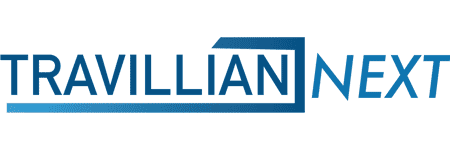Written from the perspective of Keith Daly, Principal, Banking & Fintech Search at Travillian.

Last week I attended Spring Labs’ first-ever AI-Native Banking & Fintech Conference in Salt Lake City, Utah. It was my first time visiting the city and it did not disappoint, the venue was amazing at the University of Utah football stadium. Attendees even played some football on the field after the event – hamstrings and shoulder joints were pushed to the max.
Salt Lake City is such a beautiful city, and the agenda was jam packed with insights on how Artificial Intelligence will revolutionize financial services in the coming years. We are already seeing the technology utilized at mega banks and larger financial institutions, but community banks will need to implement a strategic plan and begin discussing partnerships with tech companies to execute the plan and continue to compete in the marketplace.
The conference included demos from many of the up-and-coming tech companies in the AI space. The technology will be a game changer for community banks in the areas of customer retention, compliance, data analytics, cost efficiencies, etc.
Below are some areas AI will transform banking:
Customer Service and Personalization
One of the most visible applications of AI in banking is in customer service. AI-powered chatbots and virtual assistants These systems can handle routine queries, assist with transactions, and provide account information, all in real-time.
Personalization is another key benefit AI brings to banking. By analyzing customer data, including transaction history, spending habits, and preferences, AI can recommend personalized financial products, offer tailored advice, and alert customers about potential opportunities, such as better savings plans or loan offers.
Risk Management and Fraud Detection
AI’s ability to process vast amounts of data in real-time has made it invaluable for risk management and fraud detection. Traditional methods of detecting fraud often rely on manual processes or outdated rule-based systems, which are slower and less effective in identifying sophisticated fraud schemes. AI, however, uses advanced algorithms to monitor transactions and identify suspicious patterns, detecting fraud almost instantly.
Credit risk assessment is another area where AI is making a significant impact. By analyzing a broader range of data points, such as social media activity, spending behavior, and even psychometric data, AI can provide more accurate risk assessments for lending decisions. This allows banks to offer loans to customers who might have been overlooked by traditional credit scoring methods while minimizing the risk of default.
Automating Processes and Reducing Costs
Automation is one of the core advantages AI offers to the banking sector. Robotic Process Automation (RPA) uses AI to handle repetitive, rule-based tasks such as data entry, document processing, and account reconciliation. These AI-powered systems are faster, more efficient, and less prone to errors than their human counterparts.
By automating these processes, banks can reduce operational costs and redirect human resources to more strategic, value-added tasks. For instance, AI can automate the process of customer onboarding by verifying documents, performing KYC (Know Your Customer) checks, and assessing creditworthiness, significantly speeding up what was once a time-consuming manual process.
Enhanced Security and Regulatory Compliance
The integration of AI in banking also enhances security and helps financial institutions meet complex regulatory compliance requirements. With the rise of cyberattacks, AI-powered security systems can monitor network traffic, identify potential threats, and respond to security breaches in real time.
Moreover, AI helps banks stay compliant with constantly changing regulations. RegTech tools powered by AI can analyze large datasets, flagging potential compliance risks and automating the reporting processes. These systems can keep track of new regulatory requirements and ensure that banks adhere to them without manual intervention, reducing the risk of costly penalties.
Challenges and Ethical Considerations
While the benefits of AI in banking are numerous, there are also challenges and ethical considerations. Data privacy is one of the primary concerns, as AI systems rely on analyzing vast amounts of sensitive customer data. Banks must ensure robust data protection measures and comply with regulations such as the General Data Protection Regulation (GDPR) to safeguard customer information.
Bias in AI algorithms is another potential issue. If AI systems are trained on biased data, they can perpetuate discrimination, particularly in areas like loan approvals and credit scoring. Ensuring that AI models are transparent, explainable, and free from bias is critical for maintaining fairness and trust in AI-driven banking processes.
Regulatory Environment
A common theme at the event was the need for education at the federal and state levels for oversite or it could stymie progress. Banks and Tech companies need to engage with regulators, update them on the technology, and keep the innovation moving forward.






